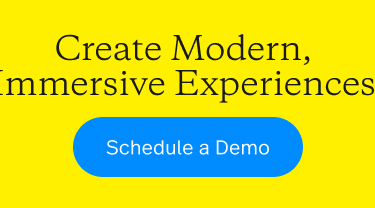In the world of event technology, legacy systems have a way of sticking around. You know the ones: overcomplicated platforms that make simple tasks a hassle, integrations a coin toss, and branding updates a borderline developer project. They frustrate your teams, limit your data visibility, and dampen the attendee experience. And yet, many event professionals stay put. Why?
Because they’re worried about migration.
It’s a reasonable hesitation. For many organizations, their event stack is deeply entrenched, with years-old CRM and marketing automation integrations, historical attendee data, and complex reporting structures. The fear is that migration will be a disruptive, time-consuming process that breaks what’s already in place, loses valuable data, or sets teams back just when they’re simply trying to move forward.
At Bizzabo, with our Event Experience OS, we’re rewriting that narrative. We’ve helped hundreds of organizations, from global enterprises to lean field marketing teams, confidently transition away from outdated tech and into the modern era. We’ve learned that migration fear is real, but it’s also solvable.
A platform migration shouldn’t be seen as a necessary evil, but rather an opportunity to streamline operations, elevate experiences, and unlock business-critical data. Here’s how to make the move with clarity, confidence, and minimal disruption.
TL;DR: To migrate your event tech platform without disruption, start with strategic alignment, build a custom migration blueprint, validate integrations, train your team thoroughly, and stay agile post-launch. With the right vendor, migration becomes a strategic unlock, not a risk.
1. How do you prepare for an event tech migration?
Too often, migrations start with a data dump and end with misaligned expectations. At Bizzabo, we flip that script. Every migration begins with a discovery phase designed to surface not just technical requirements, but the broader goals of your event program.
We conduct collaborative workshops to uncover how your event data has historically been used (or underused), map complex registration flows, understand unique reporting requirements, and document every key integration, from Salesforce and HubSpot to your analytics tools, payment gateways, and SSO configurations.
Why does this matter? Because migration should set the stage for long-term success, not just short-term continuity.
Tip: Don’t settle for one-size-fits-all onboarding. Ask your vendor how they’ll capture your program’s nuances and define success. Whether it’s improving time-to-launch, preserving historical analytics, or ensuring faster team ramp-up, alignment is everything.
2. What should your event tech migration plan include?
Every organization has unique data structures, team workflows, and tech stacks, so why do so many vendors offer cookie-cutter migration plans?
Bizzabo builds a tailored migration blueprint that accounts for the complexity of your ecosystem. This detailed technical roadmap defines exactly how your historical and current data will be handled, including precise methodologies for data extraction, transformation, validation, and loading. We also create a timeline and resourcing plan so you know exactly what to expect and when.
This blueprint also documents how we’ll replicate or enhance your existing reporting capabilities, critical for marketing and event leaders who rely on historical insights to guide future strategies.
Best practice: Your migration plan should read like a well-architected project. This means milestones, resources, validation checkpoints, and risk mitigation strategies. Push for transparency!
3. How do you migrate data and integrations to a new event platform?
Once your blueprint is locked, we move into configuration.
The modern architecture of the Event Experience OS allows for secure, accurate data migration and reliable integration. We use pre-built connectors and a flexible, open API to bring all of your systems into harmony, whether that means syncing attendee data with Salesforce, feeding campaign results into your BI tools, or implementing enterprise-grade SSO for user access.
This stage is also where your event presence is rebuilt using Bizzabo’s powerful templating system. We replicate your branded experience across your event website, registration flow, and agenda layouts, with full design flexibility and a streamlined user interface.
Best practice: Don’t just ask if a platform integrates, ask how. Does it support modern data structures? Will it evolve with your stack? A future-ready API and tested connectors are non-negotiable.
4. How can you train your team for a new event platform?
The best technology in the world won’t deliver ROI if your team doesn’t know how to use it. That’s why we focus on people, not just platforms.
We design role-based training programs tailored to your team’s responsibilities. Event managers get hands-on experience building out content and registration. Marketers get hands-on experience with the campaign tools and reporting dashboards. Administrators learn how to maximize Bizzabo’s vast API and integration capabilities. Designers get deep enablement in all things design, including website, mobile application, and all of the multitude of areas that Bizzabo allows its customers’ brand and design aesthetic to shine.
Our support model combines live onboarding, asynchronous resources, access to BizzaKnowledge, our comprehensive knowledge base, and our best-in-class Event OS Co-pilot, an AI-powered event planning expert who is always available to guide your team. We don’t disappear after a single training session; we walk alongside you until your team feels fully confident and capable.
Best practice: Plan for training and adoption as a core part of your migration timeline. The sooner your team becomes proficient, the faster you’ll start seeing results.
5. What happens after you launch your first event on a new platform?
Launching your first event on a new platform is a big moment, but it’s not the end goal. It’s the first proof point.
We stay closely involved during your first event to make sure everything goes smoothly. That includes monitoring performance, validating data flows, and measuring outcomes against the KPIs established during the discovery phase.
From there, your Customer Success Manager works with you to optimize platform usage, introduce new features, and evolve your event strategy over time.
Because Bizzabo is built for scale and agility, you’re equipped to grow, whether that means rolling out new event formats, automating lead flows, or experimenting with AI or wearable tech.
Best practice: Don’t settle for a transactional relationship. Look for a partner who sees migration not as a box to check, but as a launchpad for long-term success.
Event technology is evolving quickly. Sticking with a legacy platform because “switching event software feels too scary” could be costing you more than you think. Consider the wasted time, siloed data, uninspired experiences, and sluggish insights.
The good news? Migration doesn’t have to be disruptive. With the right strategy, team, and technology, it can actually mean acceleration.
Bizzabo’s five-phase process turns complexity into clarity and uncertainty into strategic momentum. We don’t just help you move platforms, we help you move forward with confidence.
Ready to turn migration into momentum? Let’s start the conversation.
Frequently asked questions about event tech migration
What is the biggest challenge in switching event platforms?
The most common concern is data loss or disruption to ongoing events. That’s why strategy, documentation, and training are essential.
How long does it take to migrate to a new event platform?
Timelines vary by complexity, but with a structured approach, migrations can often be completed in weeks, not months.
Will we lose historical data during the migration?
No. A custom migration blueprint ensures precise data extraction, transformation, and validation to preserve critical historical insights and enable continuity in reporting and analysis.
How should team training be handled for the new platform?
Your event technology provider should offer role-based training tailored to event managers, marketers, admins, and designers. Ask whether their training includes live sessions, asynchronous resources, or a combination.
What kind of support should my new vendor provide after we launch our first event?
At Bizzabo, your Customer Success Manager stays engaged post-launch to monitor KPIs, optimize usage, and support your evolving event strategy, ensuring you get long-term value from the platform.
👇Follow more 👇
👉 bdphone.com
👉 ultractivation.com
👉 trainingreferral.com
👉 shaplafood.com
👉 bangladeshi.help
👉 www.forexdhaka.com
👉 uncommunication.com
👉 ultra-sim.com
👉 forexdhaka.com
👉 ultrafxfund.com
👉 bdphoneonline.com
👉 dailyadvice.us


